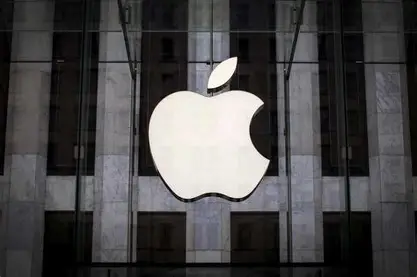
In a battle of high stakes regarding digital regulation and platform power, Apple Inc. has submitted a formal appeal against the €500 million fine handed down by the European Commission in April 2025. The fine one of the first to be levied under the groundbreaking Digital Markets Act (DMA) came for Apple’s non-compliance with regulations that need app developers to be enabled to lead users to competing payment choices outside the App Store environment.
The case is a turning point in the EU’s drive to impose equitable digital markets and limit the gatekeeper monopolies of tech giants. Apple views the ruling as regulatory overreach, arguing the Commission’s reading of the law is legally and pragmatically incorrect.
Why Apple Was Fined
In April 2025, Apple was fined by the European Commission for prohibiting app developers from “steering” users to third-party payment platforms a major DMA requirement, effective in May 2023. Steering refers to developers being able to inform users, inside their apps, of cheaper or alternative ways to pay outside of Apple’s App Store, thereby avoiding the traditional 15-30% commission fees.
For any queries or to publish an article or post or advertisement on our platform, do call at +91 6377460764 or email us at contact@legalmaestros.com.
The Commission argued that Apple had violated its obligations as a “gatekeeper” platform by continuing to block or disincentivize this steering behavior. According to regulators, Apple’s App Store policies hindered fair competition and limited consumer choice.
Apple’s Defense: Confusing Terms, Unfair Penalty
Apple has strongly contested the fine and the legal reasoning behind it. In a statement to TechCrunch, the company said:
“We believe the European Commission’s decision and their unprecedented fine go far beyond what the law requires. As our appeal will show, the EC is mandating how we run our store and forcing business terms which are confusing for developers and bad for users.”
Apple maintains that it complied with the spirit of the DMA and that the Commission is attempting to micromanage the company’s business model. Apple argues that the fine punishes it retroactively and fails to account for its recent changes to accommodate the EU’s requirements.
Apple’s Revised Fee Structure
In late June 2025, Apple introduced a new and more complex fee structure for apps distributed in the EU, seemingly in response to regulatory pressure. The changes include:
- A Core Technology Fee of 5% for developers who link to external payment platforms.
- A Store Services Fee ranging from 5% to 13% depending on the developer’s tier and the services used.
- A 2% Initial Acquisition Fee if the user first downloaded the app from the App Store.
While these adjustments legally enable external payments, critics contend the new charges remain a burden on developers and discourage them from taking advantage of third-party systems, conceivably contravening the DMA in spirit if not in law.
What the EU Says
The European Commission has maintained that Apple’s policy changes came too late and were insufficient. It claims that Apple continues to create friction for developers attempting to implement alternative payment options. The fine thus serves as a tangible enforcement of the DMA’s mandate: stimulating competition and restraining the influence of dominant digital platforms.
In the event that Apple’s new system is said to be non-compliant it may be subject to a daily maximum fine of €50 million adding to its legal and financial jeopardy.
Wider Implications
This case is attracting close interest from tech titans, regulators, and developers globally. It’s the first major enforcement action under the Digital Markets Act to go to court, and the decision might establish a formidable precedent.
If Apple prevails:
• It might dilute the DMA’s regulatory authority, with future enforcement actions likely being more challenging.
• Other tech businesses will likely employ the victory as a blueprint for appealing similar antitrust fines.
If the EU succeeds:
• Apple and other tech giants such as Google, Meta,Amazon will be compelled to overhaul their platform and monetization strategies throughout the EU.
• It will give encouragement to global regulators, including those in the U.S., in the UK and India to follow similar tough lines against digital monopolies.
What Happens Next?
Apple’s appeal has been filed with the General Court of the European Union, the first level of judicial review within the EU legal system. If it loses there, the company may appeal further to the European Court of Justice (ECJ). The legal process may take several months to years, during which the Commission will continue monitoring Apple’s compliance.
Meanwhile, the EU has opened ongoing investigations into Apple’s revised policies to assess whether they fulfill the DMA’s requirements—or merely sidestep them using technicalities.
Conclusion
Apple’s appeal is more than a corporate resistance to an enormous fine it is the enactment of the underlying conflict between marketplace freedom and platform authority in the era of digital monopolies. As the battle rages in court, its implications could redefine how tech ecosystems function in Europe and beyond.
References:
- Reuters: Apple takes fight against $587 million EU fine to court
- TechCrunch: Apple updates EU App Store rules
- The Verge: Apple’s new fees under scrutiny
- The Guardian: Apple appeals EU fine
- European Commission – Digital Markets Act Overview




